RBS smashes expectations with £940m profit
State-backed bank celebrates half-year success, but shadow hangs over rest of year
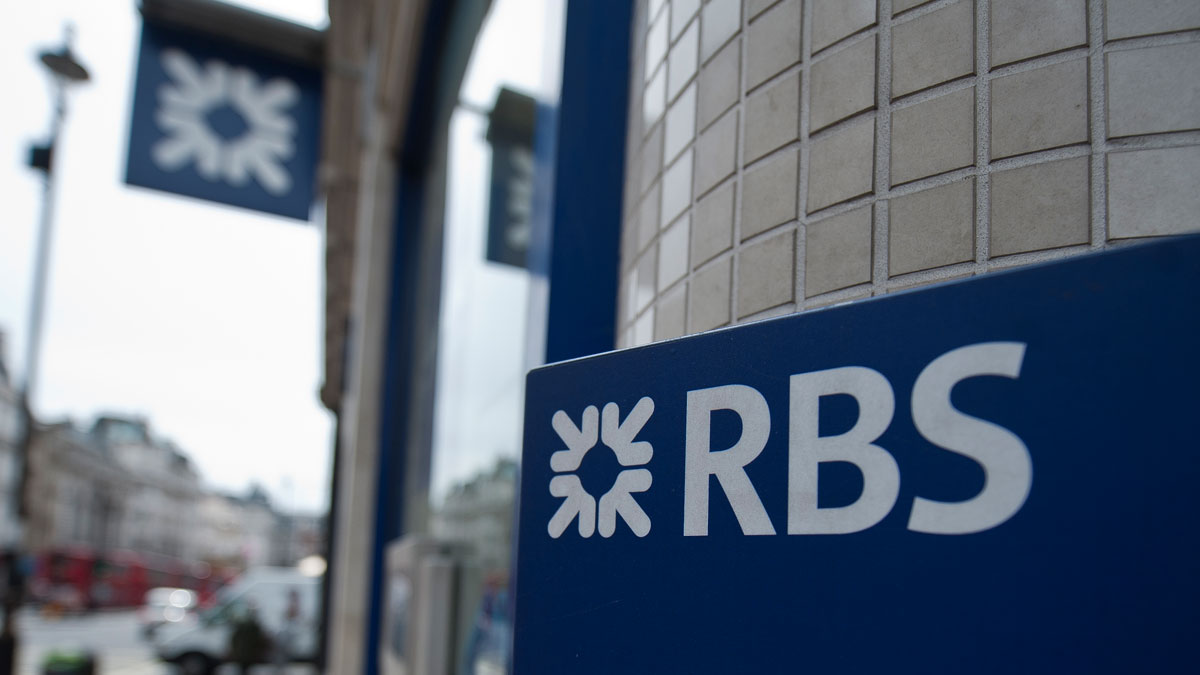
A free daily email with the biggest news stories of the day – and the best features from TheWeek.com
You are now subscribed
Your newsletter sign-up was successful
RBS 'squeezed struggling firms for profit', leak shows
10 October
Royal Bank of Scotland is facing pressure this morning after a documents leak blew open a lingering scandal over its treatment of small businesses.
A cache of emails was sent to BBC Newsnight and Buzzfeed News, which says the revelations prove the taxpayer-owned bank "killed or crippled thousands of businesses during the recession as a result of a deliberate plan to add billions of pounds to its balance sheet".
The Week
Escape your echo chamber. Get the facts behind the news, plus analysis from multiple perspectives.

Sign up for The Week's Free Newsletters
From our morning news briefing to a weekly Good News Newsletter, get the best of The Week delivered directly to your inbox.
From our morning news briefing to a weekly Good News Newsletter, get the best of The Week delivered directly to your inbox.
The documents relate to RBS's Global Restructuring Group (GRG), its "turnaround" division set up in the wake of the financial crisis. GRG was accused by government adviser Lawrence Tomlinson in 2014 of deliberately causing businesses to fail to boost profits.
In the leaked emails, senior managers outline "Project Dash for Cash", which required staff to "search for companies that could be restructured, or have their interest rates bumped up," says the BBC.
If a company was deemed "viable", staff were encouraged to restructure its borrowings to reduce RBS's loan book and boost revenues. Restructuring would often include giving up "cheap stakes in their assets or equity" to the bank, says Buzzfeed.
For companies that RBS "wanted to exit", employees were told to press for debts to be repaid "as soon as possible through refinancing, realisation of assets, and possibly commencing insolvency proceedings".
A free daily email with the biggest news stories of the day – and the best features from TheWeek.com
Other revelations include that firms were pushed into the restructuring division "for reasons other than financial distress, including for telling RBS they wanted to leave the bank" and that RBS's property division was passed information by the restructuring team.
The leak appears to completely contradict claims made in 2014 by Derek Sach and Chris Sullivan, the senior RBS executives in charge of GRG, that the restructuring arm was not a "profit centre".
The division's income "exceeded its expenses by a wide margin, returning a profit of £1.2bn in just one year, 2011", says the BBC. Of 1,483 business customers transferred to the unit by 2012, "only 452 cases were returned to normal banking".
RBS said: "RBS has been very clear that GRG's role was to protect the bank's position... In the aftermath of the financial crisis we did not always meet our own high standards and we let some of our SME customers down."
Bosses insist, however, that the documents offer no evidence "the bank artificially distressed otherwise viable SME businesses or deliberately caused them to fail". They say the bank lost £2bn on small business loans after the crisis and did not make an overall profit on GRG's activities.
RBS to rename itself Natwest in England
30 September
The Royal Bank of Scotland brand is going to disappear from high streets south of the border under plans to comply with a regulatory "ring-fence".
In fact, says the Financial Times, the RBS acronym so reminiscent of the bank's ultimately catastrophic pre-crisis expansion under Fred "The Shred" Goodwin will disappear right across Britain.
Branches in Scotland will now feature the full "Royal Bank of Scotland" name, with "the NatWest name replacing it in England and Wales", adds the Daily Telegraph. The Ulster Bank name will remain across Northern Ireland and Ireland.
About 200 branches in Scotland and 500 in total are being rebranded.
Chief marketing officer David Wheldon said: "We are no longer a global bank with global ambitions to be the biggest. We are now a UK and Ireland-focused bank with a strong bank of brands and an ambition to be the best bank for customers."
The FT says the RBS acronym had been heavily "promoted" by Goodwin "as part of his rapacious global expansion". It will remain as the bank's stock exchange identity and "corporate banner".
Under rules put in place to avoid a repeat of the financial crisis, all UK banks with assets of more than £25bn must separate their retail banks from their "casino" investment banking units by 2018.
RBS's ring-fence plans will see the bank house its "personal, private, business and commercial customers, and the NatWest, Coutts and two Ulster bank divisions" in a new holding company called Natwest Holdings, adds the paper.
It is not yet known what will happen to the 314 branches, 1.8 million personal customers and 250,000 small business customers RBS is being forced to spin out by the European Commission.
Splitting the unit has become a saga that has so far cost around £1.5bn, with a plan to list it under the old Williams & Glyn brand having been abandoned and a trade sale to Santander having already fallen through.
RBS pays $1.1bn to settle US lawsuit – but bigger costs are coming
28 September
Royal Bank of Scotland has agreed to pay $1.1bn (£846m) to settle US lawsuits over sales of the mortgage-backed bonds that were at the centre of the financial crash.
But this is just a drop in the ocean compared to the costs it could yet face on this matter, with some analysts predicting as much as £9bn in fines to come.
The latest agreement with the National Credit Union Administration Board (NCUA), which regulates US credit unions, concludes two of the US lawsuits RBS was facing, says the Financial Times.
It follows a separate settlement the state-backed bank struck last year with NCUA for almost $130m (£100m).
RBS bosses stressed the new penalty is more than covered by the £3.8bn the bank has held back to deal with ongoing litigations related to past wrongdoing - and says it will still meet its regulatory obligations on cash reserves.
Crucially, it also means the bank has avoided admitting any wrongdoing.
Negotiations with the Department of Justice could be more costly. This month, the US government opened proceedings with Deutsche Bank on the same matter with a demand for $14bn (£11bn).
The Guardian says analysts predict RBS may be forced to settle for as much as £9bn. Between the Department of Justice and a separate suit brought by Federal Housing Finance Agency, the FT cites estimates for penalties of up to $13bn (£10bn).
Anything in that order of magnitude would certainly force the bank to set more money aside, which could in turn delay its return to profit and its return to the private sector.
RBS does not expect the Department of Justice discussions to be concluded until next year.
It shares dipped this morning but moved into the black as the day went on, with investors welcoming the certainty the settlement brings. However, the price is still down by 12 per cent this month, at around 177p.
Royal Bank of Scotland passes on negative interest rate
22 August
Royal Bank of Scotland has become the first UK high street bank to charge negative interest rates, as the ultra-low borrowing cost environment takes a toll on its profitability.
However, standard savers do not need to worry yet: the changes do not apply to ordinary saving or current account customers.
Instead, it affects around 70 large financial institutions using cash as collateral trade complex derivatives. The money is in many instances processed through European clearing houses that are themselves charging for cash holdings.
Certain interest rates have been set below zero by the European Central Bank and national central banks in Switzerland, Sweden and Denmark.
"As you will be aware, there are a number of currencies which now attract negative overnight rates for deposits," RBS told its customers, reports the Financial Times.
"To date we have been flooring deposit rates at zero per cent but we have now reached the stage where we can no longer sustain this level of floor. As a result of the continuing interest rate situation we will be implementing negative interest rates."
Although rates in the UK are still above zero, the new charge will apply to all cash holdings including sterling, says the Daily Telegraph. Banks can avoid the fee by holding collateral in bonds.
RBS argues it is simply passing on costs clearing houses impose. However, the move is a symptom of the ultra-low rates environment that squeezes bank profit margins by reducing the spread between what they can charge customers for loans and must pay out on deposits.
Savers in the UK are already being hit by falling savings account rates that have in some cases been cut by more than the latest reduction in the Bank of England base rate.
Across Europe there are already negative rates imposed on business customers, including by RBS's own Ulster Bank. One small Bavarian bank has even moved to impose the charge on retail deposits, but only so far on those with more than €100,000 in savings.
"We are still a long way from banks imposing negative interest rates on personal customers, which would be a deeply unpopular move, though clearly the direction of travel is concerning for savers," Laith Khalaf, a senior analyst at Hargreaves Lansdown, told The Guardian.
RBS racks up £52bn of losses since taxpayer bailout
05 August
Royal Bank of Scotland has posted a hefty £2bn loss for the first half of 2016, far worse than analysts had anticipated.
The figures mean the bank, which remains 73 per cent owned by the taxpayer, has racked up a cumulative £52bn of losses since it was bailed out to the tune of £45bn in the wake of the financial crash in 2008, says The Guardian.
The first-half deficit, which was well up from £179m for the same period last year, was mostly due to RBS taking £1.3bn in new charges and provisions relating to past misconduct.
More than half of this is money set aside to settle claims from shareholders relating to its contentious £12bn cash-call prior to the government rescue, reports the Financial Times. It has also added £400m to its payment protection insurance (PPI) compensation bill.
RBS's results also confirmed it will no longer establish the Williams & Glyn unit it is being forced to offload by EU officials, effectively writing off its £1.4bn spend on the project so far.
A trade sale will now be pursued and an offer from Santander is already thought to have been submitted.
More worrying than all of this for investors will be the analysis by RBS bosses of the bank's prospects in the years to come, which have worsened in the light of yesterday's interest rate cut and projections for rates to stay lower in the wake of the Brexit vote.
Chief executive Ross McEwan said this would hit profit margins and make achieving the five-year returns targets set out two years ago for 2019 "more challenging".
McEwan has refused to confirm the bank will pass on the 0.25 per cent rates cut to mortgage borrowers on RBS's standard variable rate of four per cent. He has also warned costs will need to be cut next year, implying job losses and branch closures to come.
RBS shares were 5.4 per cent lower at around 11.20am this morning, to 181.70p.
-
 The ‘ravenous’ demand for Cornish minerals
The ‘ravenous’ demand for Cornish mineralsUnder the Radar Growing need for critical minerals to power tech has intensified ‘appetite’ for lithium, which could be a ‘huge boon’ for local economy
-
 Why are election experts taking Trump’s midterm threats seriously?
Why are election experts taking Trump’s midterm threats seriously?IN THE SPOTLIGHT As the president muses about polling place deployments and a centralized electoral system aimed at one-party control, lawmakers are taking this administration at its word
-
 ‘Restaurateurs have become millionaires’
‘Restaurateurs have become millionaires’Instant Opinion Opinion, comment and editorials of the day
-
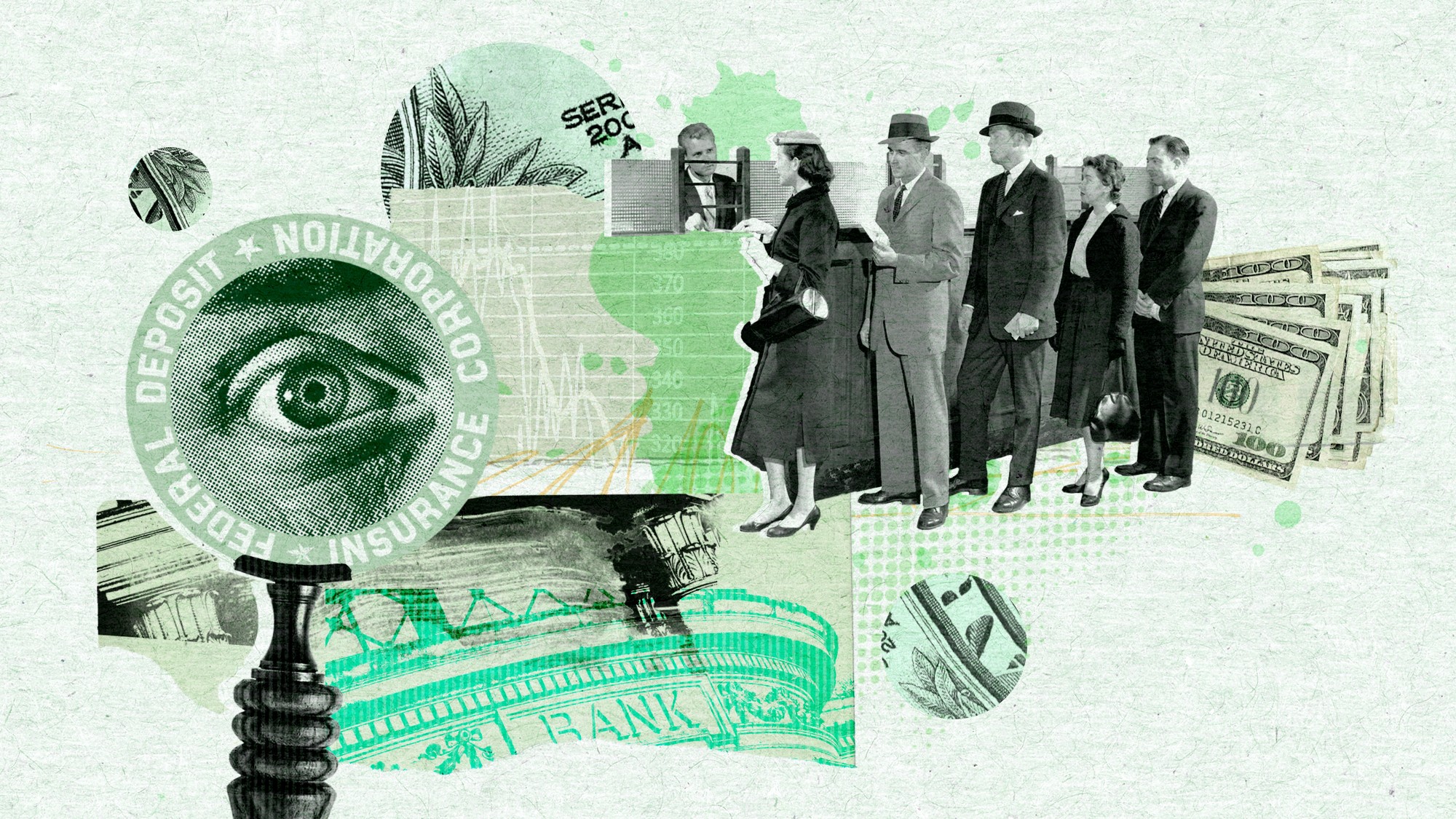 What does the FDIC do?
What does the FDIC do?In the Spotlight The Federal Deposit Insurance Corporation is now a 'Trump target'
-
 TD Bank accepts $3B fine over money laundering
TD Bank accepts $3B fine over money launderingSpeed Read The US retail bank pleaded guilty to multiple criminal charges
-
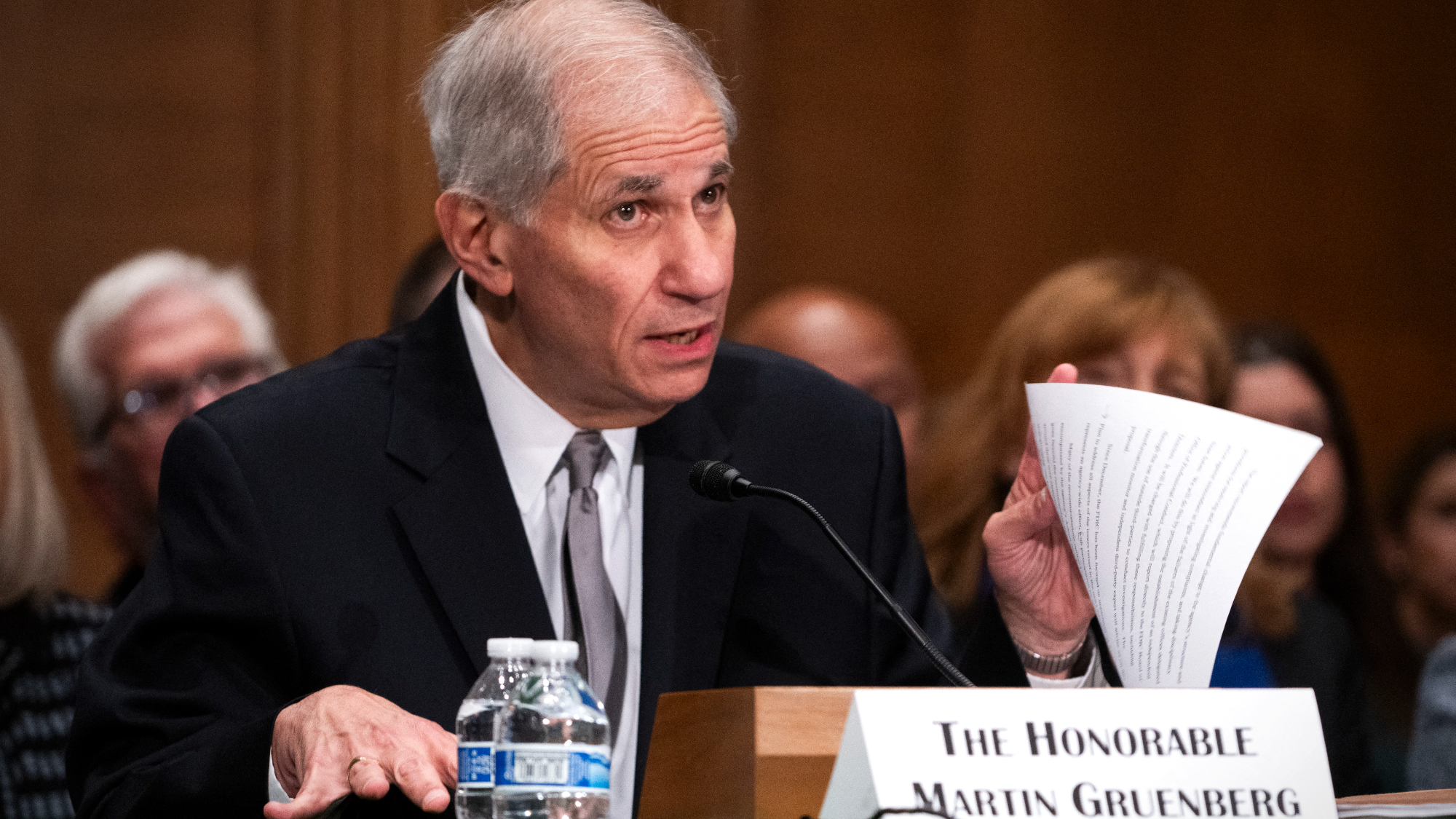 FDIC chair out after toxic work culture report
FDIC chair out after toxic work culture reportSpeed Read The report revealed a trend of sexual harassment and discrimination at the Federal Deposit Insurance Corporation
-
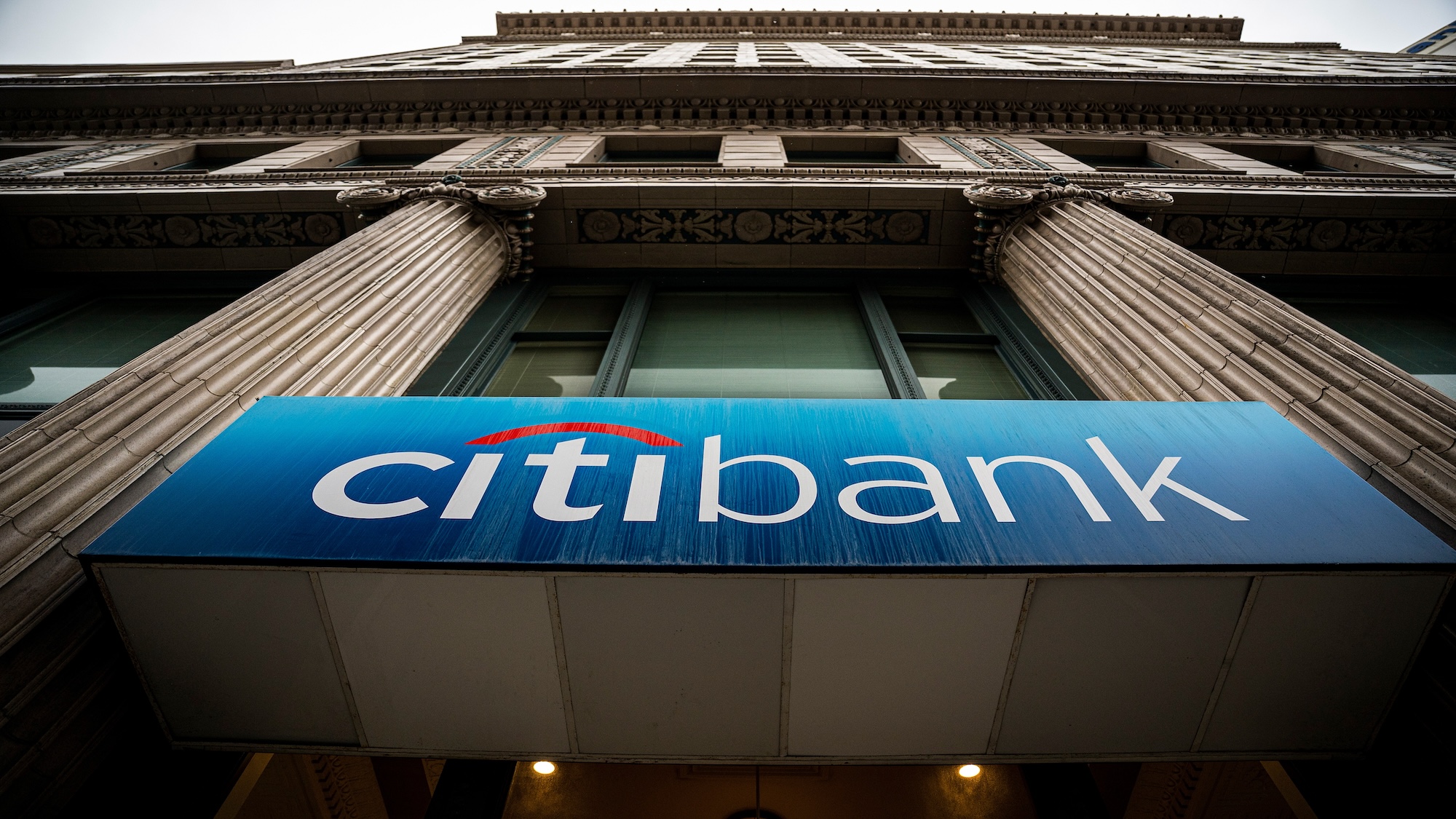 Citibank to cut off online access for customers who don't go paperless
Citibank to cut off online access for customers who don't go paperlessSpeed Read The bank will shut off the customer's access to both their online website and mobile app
-
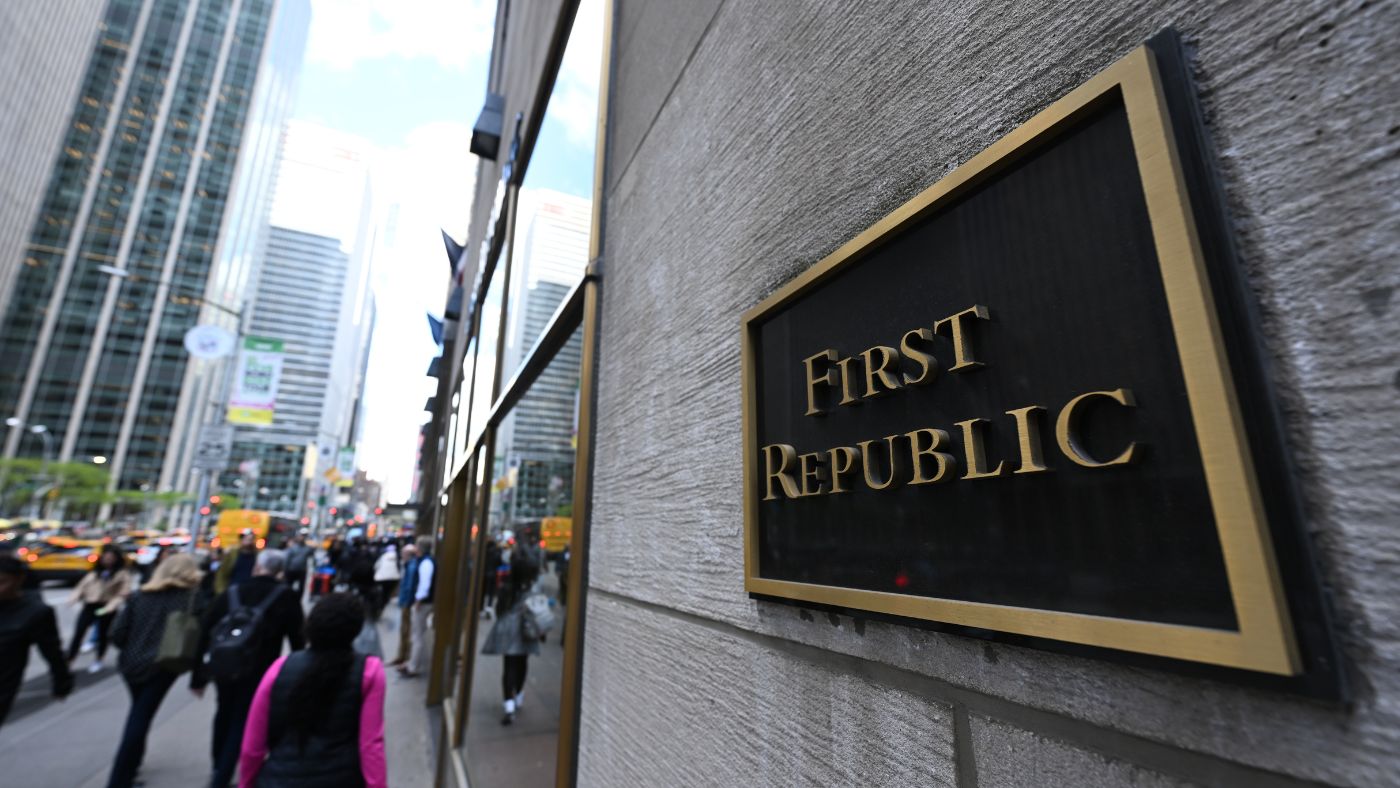 First Republic: will UK banks survive unscathed?
First Republic: will UK banks survive unscathed?Under the Radar US shares dip after collapse of third regional bank, but experts say contagion to the UK is unlikely
-
 Banking crisis: has the city weathered the financial storm?
Banking crisis: has the city weathered the financial storm?Talking Point The financial storm appears to have abated, but no one’s ruling out more squalls along the way
-
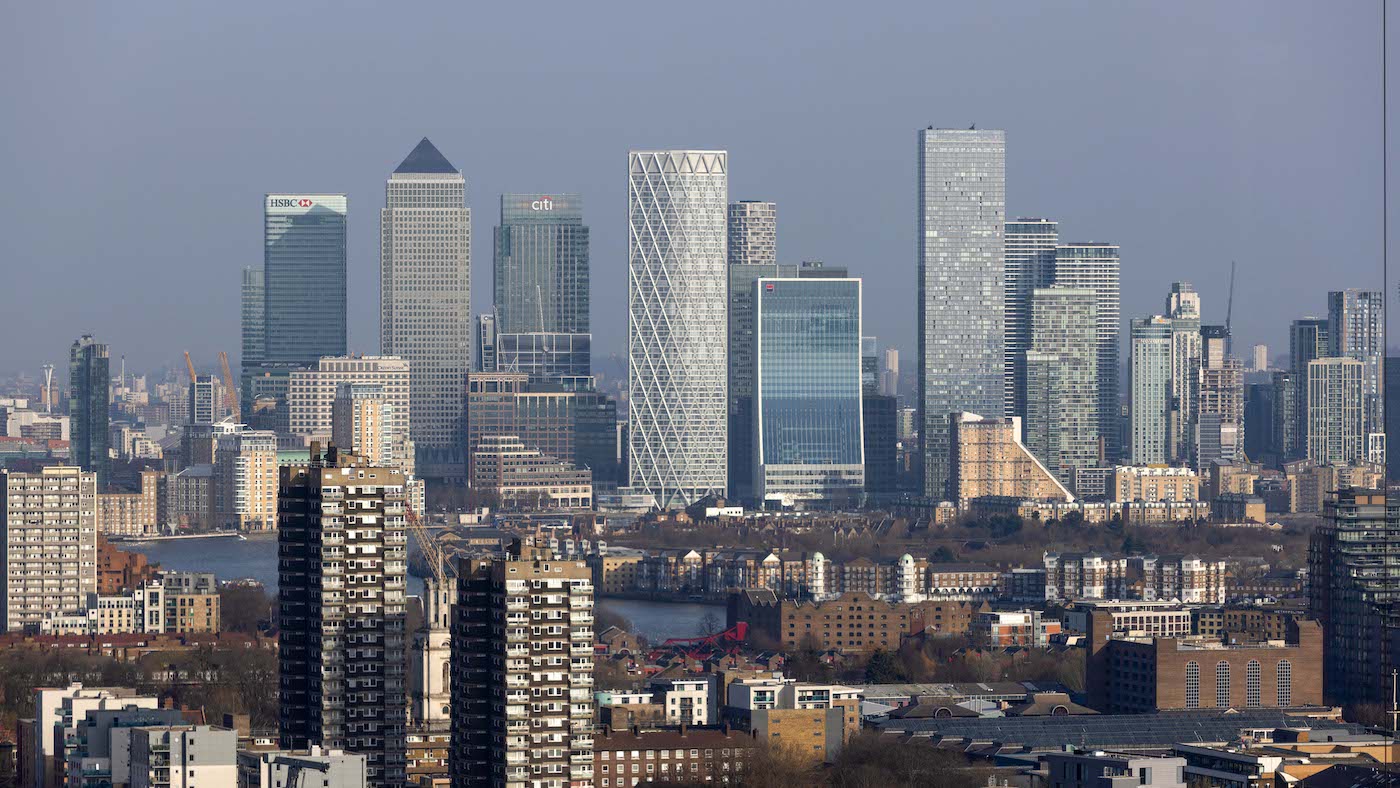 Should the UK relax bank ring-fencing rules?
Should the UK relax bank ring-fencing rules?Talking Point Treasury minister said he hopes to ‘boost competitiveness’ in the City with easing of regulations
-
 Should caps on bankers’ bonuses be scrapped?
Should caps on bankers’ bonuses be scrapped?Talking Point New chancellor Kwasi Kwarteng believed to be planning contentious move to ‘boost the City’